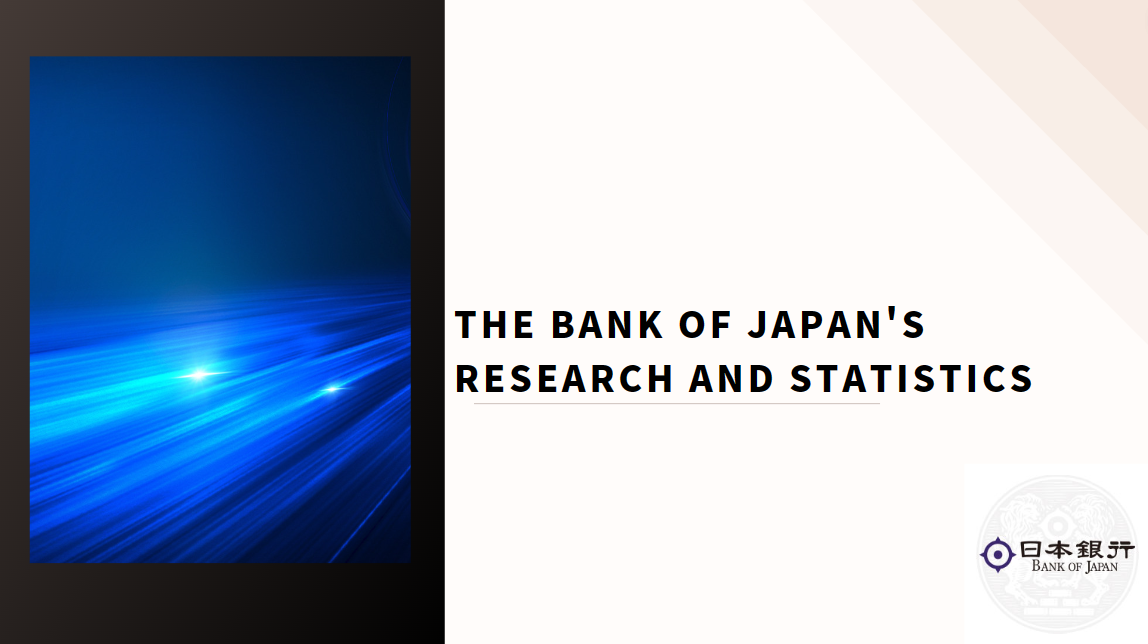Bank of Japan
Objectives
The Act sets the Bank's objectives "to issue banknotes and to carry out currency and monetary control" and "to ensure smooth settlement of funds among banks and other financial institutions, thereby contributing to the maintenance of stability of the financial system."
The Act also stipulates the Bank's principle of currency and monetary control as follows: "currency and monetary control by the Bank of Japan shall be aimed at achieving price stability, thereby contributing to the sound development of the national economy."
The Bank's business operations to achieve the above objectives are described in About the Bank, Monetary Policy, Financial System, Payments and Markets, Banknotes, The Bank's Treasury Funds and JGS Services, International Finance, Research and Studies, Statistics and Announcements. The Bank has also decided and made public its organizational principles, which constitute the set of fundamental values to be respected by the Bank, as the central bank of Japan. The officers and employees of the Bank must respect these principles at all times in the conduct of business operations.
Organization
1. The Policy Board
The Policy Board is established as the Bank's highest decision-making body. The Board determines the guideline for currency and monetary control, sets the basic principles for carrying out the Bank's operations, and oversees the fulfillment of the duties of the Bank's officers, excluding Auditors and Counsellors.
2. The Bank's Officers
The Bank's officers are Policy Board members (including the Governor and the Deputy Governors), Auditors, Executive Directors, and Counsellors.*1
*The number of posts given to the Bank's officers is as follows: the Governor (one), the Deputy Governors (two), the Members of the Policy Board (six), the Auditors (three or fewer), the Executive Directors (six or fewer), and the Counsellors (a few).
3. Departments, Branches, Local Offices in Japan, and Overseas Representative Offices
There are 15 departments at the Bank's Head Office (see Organization chart for details).
The Bank has 32 branches and 14 local offices in Japan, and seven overseas representative offices (see Head Office, Branches, and Overseas Offices for details).
Capital
The Bank is capitalized at 100 million yen in accordance with the Act. About 55 percent of the capital is subscribed by the government.*2
*The Act states that "of the amount of stated capital set forth in the preceding paragraph, the amount of contribution by the government shall be no less than fifty-five million yen."
The Act does not grant holders of subscription certificates the right to participate in the Bank's management, and, in the case of liquidation, only gives them the right to request distribution of remaining assets up to the sum of the paid-up capital and, if any, the special reserve. Dividend payments on paid-up capital are limited to 5 percent or below in each fiscal period.
History
The Bank of Japan was established under the Bank of Japan Act (promulgated in June 1882) and began operating on October 10, 1882, as the nation's central bank. The Bank was reorganized on May 1, 1942 in conformity with the Bank of Japan Act (hereafter the Act of 1942), promulgated in February 1942. The Act of 1942 strongly reflected the wartime situation: for example, Article 1 stated the objectives of the Bank as "the regulation of the currency, control and facilitation of credit and finance, and the maintenance and fostering of the credit system, pursuant to national policy, in order that the general economic activities of the nation might adequately be enhanced." The Act of 1942 was amended several times after World War II. Such amendments included the establishment of the Policy Board as the Bank's highest decision-making body in June 1949.
The Act of 1942 was revised completely in June 1997 under the two principles of "independence" and "transparency." The revised act (the Act) came into effect on April 1, 1998.
Outline of International Finance
The Bank conducts operations in the field of international finance, such as foreign exchange transactions, as well as business related to assisting foreign central banks and international organizations in their investment in yen.
The Bank takes part in various international discussions with foreign central banks on the state of the world economy, and in measures to ensure the stability of financial markets and to improve their structure.
The Bank also carries out international operations on behalf of the government, such as processing of notifications and reports required under the Foreign Exchange and Foreign Trade Act, compiling Japan's balance of payments (BOP) statistics, and conducting foreign exchange intervention.
Transactions with Foreign Monetary Authorities and International Organizations
The Bank assists foreign monetary authorities and international organizations in their investment in and financing of yen, by accepting yen deposits, acting as custodian for yen-denominated securities, and providing liquidation services for JGSs.
The Bank itself invests its foreign currency-denominated assets in a safe and efficient manner.
The Bank also provides technical assistance/technical cooperation on central banking business as part of its cooperation with foreign central banks, especially those in Asia.
Measures to Ensure Stability in the International Financial System
The Bank closely monitors developments in international financial markets and the financial system to identify potential risks, and compiles and makes public a wide range of statistics to facilitate deeper understanding of trends in international financial markets.
At international forums such as of the Group of Twenty (G-20), the Group of Seven (G-7), central bank governors' meetings of the Bank for International Settlements (BIS), the Executives' Meeting of East Asia-Pacific Central Banks (EMEAP), and the Financial Stability Board (FSB), the Bank exchanges detailed information and observations with foreign governments and central banks on the current state of global financial markets, including activities of financial institutions, and contributes in developing recommendations.
In addition, the Bank participates in discussions on the formulation of new standards and guidelines for governing international financial markets to contribute to enhancing the stability and efficiency of these markets.
Financial Cooperation in Asia
Financial and economic stability in Asia has become ever more crucial to Japan's economy amid further globalization and growth in business and financial transactions between Japanese institutions and counterparties located in Asia. Based on this recognition, the Bank of Japan endeavors to play a more active role in strengthening financial cooperation in the region, so as to contribute to the financial and economic stability in Asia.
International Operations on behalf of the Government
The Bank carries out international operations on behalf of the government, such as processing of notifications and reports required under the Foreign Exchange and Foreign Trade Act, compiling Japan's BOP statistics, and conducting foreign exchange intervention.
On behalf of the government, the Bank processes the filing of requests for permission, and notifications and the reporting of capital transactions, payments and receipt of payments between residents and nonresidents as required by the Foreign Exchange and Foreign Trade Act.
In 2005, the Bank started an online reporting system accessed via the Internet, to accept notifications and reports required under the Foreign Exchange and Foreign Trade Act, in order to make the procedures more efficient and convenient for the users.
The Bank also compiles statistics on Japan's BOP and international investment position (IIP).
The entities that conduct foreign exchange intervention vary from country to country. In Japan, when the yen becomes unstable in the foreign exchange market, the government (Ministry of Finance) may instruct the Bank, its agent, to conduct foreign exchange intervention by buying or selling yen for foreign currencies as needed.
Foreign exchange intervention is, generally speaking, an operation carried out by monetary authorities, such as central banks or finance ministries, buying or selling currencies with the objective of influencing the foreign exchange rate in one way or another. In the case of Japan, the Ministry of Finance is responsible for such operations and the objective is to stabilize the value of the yen. The Bank carries out the actual operations based on instructions from the Finance Minister and acts as the agent.
Official website:https://www.boj.or.jp/en/index.htm/























































First, please LoginComment After ~